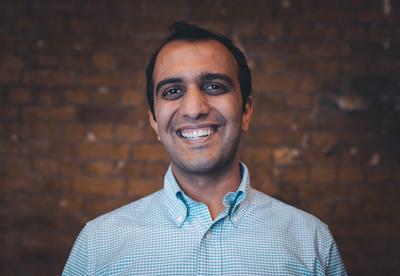Southampton engineering alumnus uses AI to fight climate change

Entrepreneurial engineer Ali Safari is making great strides in a personal mission to see the electrical grid run on 100 percent low carbon energy.
The ambitious founder of Farad.ai, an AI-powered digital twin of the power network, has been on a journey of innovation and discovery in the five years since completing a BEng Mechanical Engineering degree at the University of Southampton.
The digital start-up has been selected in an Innovate UK funding programme to accelerate the deployment of its near real-time electricity grid analytics.
The company’s AI platform models energy demand across low voltage networks, enabling greater visibility of the network and supporting the introduction of low carbon energy technologies.
“Over half of electricity is wasted before it gets to people’s homes,” Ali explains. “A lot of this wastage happens because distributors don’t have visibility of the grid.
“Renewable energy solutions – such as wind power – don’t offer the same control of when we produce electricity, so predicting where traffic is in the distribution network will be even more crucial in the future. We are enabling old infrastructure to operate in a new way.”
Farad.ai is one of nine companies to receive around £150,000 from Innovate UK through the Modernising Energy Data Applications (MEDA) competition. The investment will drive R&D activities toward an opportunity for follow-on funding later in 2021.
“I’m really excited for the next few months,” Ali says. “We are at the forefront of analytics in energy transition, an area that the UK is leading on a global scale.”
Ali honed business skills at JP Morgan and trained as a nuclear engineer before launching the start-up from the Entrepreneur First programme. He studied at Southampton between 2013 and 2016, and cites his degree’s industrial placement at Caterpillar as an inspirational springboard for his current career.
“I chose Southampton because it was ranked first in the UK for Mechanical Engineering,” he says. “The University was very supportive and Professor Suleiman Sharkh helped me secure the work experience in Bournemouth. The project sought to reduce the carbon footprint of diesel engines by recovering waste energy and converting it into a useful form.
“My training as a mechanical engineer at Southampton taught me how to solve problems. You have to think outside the box to overcome challenges and that’s something I do now on an everyday basis as a founder.”
Ali enhanced his knowledge of sustainable energy technologies by attending specialist modules in the third year of his degree.
“Energy is going to be data in the not-too-distant future,” he says. “Today, we download and upload data to the internet, and soon it will be the same for energy with your house and car acting as a mini-generator for the energy system. Farad.ai’s data and analytics will be key to managing this power system.
“As we access more datasets, our richer platform will be able to solve different problems through aggregation and machine learning. The company’s future is uncertain and exciting. We will keep innovating and stay ahead of the curve.”